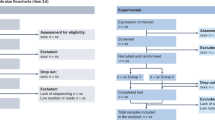Abstract
Human microbiome science has advanced rapidly and reached a scale at which basic biology, clinical translation and population health are increasingly integrated. It is thus now possible for public health researchers, practitioners and policymakers to take specific action leveraging current and future microbiome-based opportunities and best practices. Here we provide an outline of considerations for research, education, interpretation and scientific communication concerning the human microbiome and public health. This includes guidelines for population-scale microbiome study design; necessary physical platforms and analysis methods; integration into public health areas such as epidemiology, nutrition, chronic disease, and global and environmental health; entrepreneurship and technology transfer; and educational curricula. Particularly in the near future, there are both opportunities for the incorporation of microbiome-based technologies into public health practice, and a growing need for policymaking and regulation around related areas such as prebiotic and probiotic supplements, novel live-cell therapies and fecal microbiota transplants.
This is a preview of subscription content, access via your institution
Access options
Access Nature and 54 other Nature Portfolio journals
Get Nature+, our best-value online-access subscription
$29.99 / 30 days
cancel any time
Subscribe to this journal
Receive 12 print issues and online access
$209.00 per year
only $17.42 per issue
Buy this article
- Purchase on Springer Link
- Instant access to full article PDF
Prices may be subject to local taxes which are calculated during checkout



Similar content being viewed by others
References
Thomas, A. M. et al. Metagenomic analysis of colorectal cancer datasets identifies cross-cohort microbial diagnostic signatures and a link with choline degradation. Nat. Med. 25, 667–678 (2019).
Aron-Wisnewsky, J. et al. Gut microbiota and human NAFLD: disentangling microbial signatures from metabolic disorders. Nat. Rev. Gastroenterol. Hepatol. 17, 279–297 (2020).
Garrett, W. S. Cancer and the microbiota. Science 348, 80–86 (2015).
Khoruts, A. Targeting the microbiome: from probiotics to fecal microbiota transplantation. Genome Med. 10, 80 (2018).
Kolodziejczyk, A. A., Zheng, D. & Elinav, E. Diet–microbiota interactions and personalized nutrition. Nat. Rev. Microbiol. 17, 742–753 (2019).
Donia, M. S. & Fischbach, M. A. Small molecules from the human microbiota. Science 349, 1254766 (2015).
Carmody, R. N. & Turnbaugh, P. J. Host–microbial interactions in the metabolism of therapeutic and diet-derived xenobiotics. J. Clin. Invest. 124, 4173–4181 (2014).
Mallick, H. et al. Experimental design and quantitative analysis of microbial community multiomics. Genome Biol. 18, 228 (2017).
Sinha, R. et al. Assessment of variation in microbial community amplicon sequencing by the Microbiome Quality Control (MBQC) project consortium. Nat. Biotechnol. 35, 1077–1086 (2017).
Costea, P. I. et al. Towards standards for human fecal sample processing in metagenomic studies. Nat. Biotechnol. 35, 1069–1076 (2017).
Zhernakova, A. et al. Population-based metagenomics analysis reveals markers for gut microbiome composition and diversity. Science 352, 565–569 (2016).
Lloyd-Price, J. et al. Strains, functions and dynamics in the expanded Human Microbiome Project. Nature 550, 61–66 (2017).
Aagaard, K. et al. The Human Microbiome Project strategy for comprehensive sampling of the human microbiome and why it matters. FASEB J. 27, 1012–1022 (2013).
Everett, C. et al. Prospective characterization of the microbiome within cohort studies: overview of the Microbiome Among Nurses study (Micro-N). Nat. Protoc. (in the press).
Franzosa, E. A. et al. Sequencing and beyond: integrating molecular ‘omics’ for microbial community profiling. Nat. Rev. Microbiol. 13, 360–372 (2015).
Lloyd-Price, J. et al. Multi-omics of the gut microbial ecosystem in inflammatory bowel diseases. Nature 569, 655–662 (2019).
Lloyd-Price, J., Abu-Ali, G. & Huttenhower, C. The healthy human microbiome. Genome Med. 8, 51 (2016).
Lam, K. N., Alexander, M. & Turnbaugh, P. J. Precision medicine goes microscopic: engineering the microbiome to improve drug outcomes. Cell Host Microbe 26, 22–34 (2019).
Haiser, H. J. et al. Predicting and manipulating cardiac drug inactivation by the human gut bacterium Eggerthella lenta. Science 341, 295–298 (2013).
Maier, L. et al. Extensive impact of non-antibiotic drugs on human gut bacteria. Nature 555, 623–628 (2018).
Gensollen, T. & Blumberg, R. S. Correlation between early-life regulation of the immune system by microbiota and allergy development. J. Allergy Clin. Immunol. 139, 1084–1091 (2017).
Kim, S. & Jazwinski, S. M. The gut microbiota and healthy aging: a mini-review. Gerontology 64, 513–520 (2018).
Sze, M. A. & Schloss, P. D. Looking for a signal in the noise: revisiting obesity and the microbiome. MBio https://doi.org/10.1128/mBio.01018-16 (2016).
Wang, D. D. et al. The gut microbiome modulates the protective association between a Mediterranean diet and cardiometabolic disease risk. Nat. Med. 27, 333–343 (2021).
Gibson, G. R. et al. Expert consensus document: The International Scientific Association for Probiotics and Prebiotics (ISAPP) consensus statement on the definition and scope of prebiotics. Nat. Rev. Gastroenterol. Hepatol. 14, 491–502 (2017).
Marco, M. L. et al. Health benefits of fermented foods: microbiota and beyond. Curr. Opin. Biotechnol. 44, 94–102 (2017).
McNulty, N. P. et al. The impact of a consortium of fermented milk strains on the gut microbiome of gnotobiotic mice and monozygotic twins. Sci. Transl. Med. 3, 106ra106 (2011).
Suez, J. et al. Post-antibiotic gut mucosal microbiome reconstitution is impaired by probiotics and improved by autologous FMT. Cell 174, 1406–1423 (2018).
Ballal, S. A. et al. Host lysozyme-mediated lysis of Lactococcus lactis facilitates delivery of colitis-attenuating superoxide dismutase to inflamed colons. Proc. Natl Acad. Sci. USA 112, 7803–7808 (2015).
Wang, Y. et al. Staphylococcus epidermidis in the human skin microbiome mediates fermentation to inhibit the growth of Propionibacterium acnes: implications of probiotics in acne vulgaris. Appl. Microbiol. Biotechnol. 98, 411–424 (2014).
Norman, J. M. et al. Disease-specific alterations in the enteric virome in inflammatory bowel disease. Cell 160, 447–460 (2015).
Howitt, M. R. et al. Tuft cells, taste-chemosensory cells, orchestrate parasite type 2 immunity in the gut. Science 351, 1329–1333 (2016).
Vehik, K. et al. Prospective virome analyses in young children at increased genetic risk for type 1 diabetes. Nat. Med. 25, 1865–1872 (2019).
Cryan, J. F. et al. The microbiota–gut–brain axis. Physiol. Rev. 99, 1877–2013 (2019).
Pasolli, E., Truong, D. T., Malik, F., Waldron, L. & Segata, N. Machine learning meta-analysis of large metagenomic datasets: tools and biological insights. PLoS Comput. Biol. 12, e1004977 (2016).
Geller, L. T. et al. Potential role of intratumor bacteria in mediating tumor resistance to the chemotherapeutic drug gemcitabine. Science 357, 1156–1160 (2017).
Gopalakrishnan, V. et al. Gut microbiome modulates response to anti-PD-1 immunotherapy in melanoma patients. Science 359, 97–103 (2018).
Garrett, W. S. The gut microbiota and colon cancer. Science 364, 1133–1135 (2019).
Libertucci, J. & Young, V. B. The role of the microbiota in infectious diseases. Nat. Microbiol. 4, 35–45 (2019).
Hendriksen, R. S. et al. Global monitoring of antimicrobial resistance based on metagenomics analyses of urban sewage. Nat. Commun. 10, 1124 (2019).
Hagan, T. et al. Antibiotics-driven gut microbiome perturbation alters immunity to vaccines in humans. Cell 178, 1313–1328 (2019).
Eyre, D. W. et al. A Candida auris outbreak and its control in an intensive care setting. N. Engl. J. Med. 379, 1322–1331 (2018).
Drekonja, D. et al. Fecal microbiota transplantation for Clostridium difficile infection: a systematic review. Ann. Intern. Med. 162, 630–638 (2015).
Krismer, B., Weidenmaier, C., Zipperer, A. & Peschel, A. The commensal lifestyle of Staphylococcus aureus and its interactions with the nasal microbiota. Nat. Rev. Microbiol. 15, 675–687 (2017).
Hsu, B. B. et al. Dynamic modulation of the gut microbiota and metabolome by bacteriophages in a mouse model. Cell Host Microbe 25, 803–814 (2019).
Gosmann, C. et al. Lactobacillus-deficient cervicovaginal bacterial communities are associated with increased HIV acquisition in young South African women. Immunity 46, 29–37 (2017).
Mukherjee, D., Chora, A. F. & Mota, M. M. Microbiota, a third player in the host–plasmodium affair. Trends Parasitol. 36, 11–18 (2020).
Negatu, D. A. et al. Gut microbiota metabolite indole propionic acid targets tryptophan biosynthesis in Mycobacterium tuberculosis. MBio https://doi.org/10.1128/mBio.02781-18 (2019).
Blanton, L. V., Barratt, M. J., Charbonneau, M. R., Ahmed, T. & Gordon, J. I. Childhood undernutrition, the gut microbiota, and microbiota-directed therapeutics. Science 352, 1533 (2016).
Gehrig, J. L. et al. Effects of microbiota-directed foods in gnotobiotic animals and undernourished children. Science https://doi.org/10.1126/science.aau4732 (2019).
National Academies of Sciences, Engineering, and Medicine Environmental Chemicals, the Human Microbiome, and Health Risk: A Research Strategy (National Academies Press, 2018).
Claus, S. P., Guillou, H. & Ellero-Simatos, S. The gut microbiota: a major player in the toxicity of environmental pollutants? NPJ Biofilms Microbiomes 2, 16003 (2016).
Meadow, J. F. et al. Bacterial communities on classroom surfaces vary with human contact. Microbiome 2, 7 (2014).
Fahimipour, A. K. et al. Antimicrobial chemicals associate with microbial function and antibiotic resistance indoors. mSystems https://doi.org/10.1128/mSystems.00200-18 (2018).
Georges, M., Charlier, C. & Hayes, B. Harnessing genomic information for livestock improvement. Nat. Rev. Genet. 20, 135–156 (2019).
Attwood, G. T. et al. Applications of the soil, plant and rumen microbiomes in pastoral agriculture. Front. Nutr. 6, 107 (2019).
Dreher-Lesnick, S. M., Stibitz, S. & Carlson, P. E. Jr U.S. regulatory considerations for development of live biotherapeutic products as drugs. Microbiol. Spectr. 5 https://doi.org/10.1128/microbiolspec.BAD-0017-2017 (2017).
Markey, K. A. et al. The microbe-derived short-chain fatty acids butyrate and propionate are associated with protection from chronic GVHD. Blood 136, 130–136 (2020).
Ossorio, P. N. & Zhou, Y. Regulating stool for microbiota transplantation. Gut Microbes 10, 105–108 (2019).
DeFilipp, Z. et al. Drug-resistant E. coli bacteremia transmitted by fecal microbiota transplant. N. Engl. J. Med. 381, 2043–2050 (2019).
Chuong, K. H. et al. Navigating social and ethical challenges of biobanking for human microbiome research. BMC Med. Ethics 18, 1 (2017).
Franzosa, E. A. et al. Identifying personal microbiomes using metagenomic codes. Proc. Natl Acad. Sci. USA 112, E2930–E2938 (2015).
Turnbaugh, P. J. Making millennial medicine more meta. mSystems https://doi.org/10.1128/mSystems.00154-17 (2018).
Kelly, C. R., Kim, A. M., Laine, L. & Wu, G. D. The AGA’s Fecal Microbiota Transplantation National Registry: an important step toward understanding risks and benefits of microbiota therapeutics. Gastroenterology 152, 681–684 (2017).
Kelly, B. J. et al. Power and sample-size estimation for microbiome studies using pairwise distances and PERMANOVA. Bioinformatics 31, 2461–2468 (2015).
Song, S. J. et al. Preservation methods differ in fecal microbiome stability, affecting suitability for field studies. mSystems https://doi.org/10.1128/mSystems.00021-16 (2016).
Acknowledgements
We thank the Harvard Chan School administration for their support of the Microbiome in Public Health Center. This work was supported in part by NIH NIDDK R24DK110499 (W.S.G. and C.H.) and by the Cancer Research UK Grand Challenge Initiative C10674/A27140 (W.S.G.).
Author information
Authors and Affiliations
Consortia
Corresponding authors
Ethics declarations
Competing interests
C.H. is a scientific advisor for Seres Therapeutics, Empress Therapeutics and ZOE Nutrition. W.S.G. is a scientific advisor for Senda Therapeutics, Leap Therapeutics, Evelo Biosciences, Tenza Inc. and SanaRx.
Additional information
Peer review information Hannah Stower was the primary editor on this article and managed its editorial process and peer review in collaboration with the rest of the editorial team.
Publisher’s note Springer Nature remains neutral with regard to jurisdictional claims in published maps and institutional affiliations.
Rights and permissions
About this article
Cite this article
Wilkinson, J.E., Franzosa, E.A., Everett, C. et al. A framework for microbiome science in public health. Nat Med 27, 766–774 (2021). https://doi.org/10.1038/s41591-021-01258-0
Received:
Accepted:
Published:
Issue Date:
DOI: https://doi.org/10.1038/s41591-021-01258-0
This article is cited by
-
Role of Gut Microbiota in Predisposition to Colon Cancer: A Narrative Review
Indian Journal of Microbiology (2024)
-
A precision environmental health approach to prevention of human disease
Nature Communications (2023)
-
Gut metagenome associations with extensive digital health data in a volunteer-based Estonian microbiome cohort
Nature Communications (2022)
-
Emerging therapeutics
Journal of Translational Medicine (2021)
-
Melding microbiome and nutritional science with early child development
Nature Medicine (2021)



